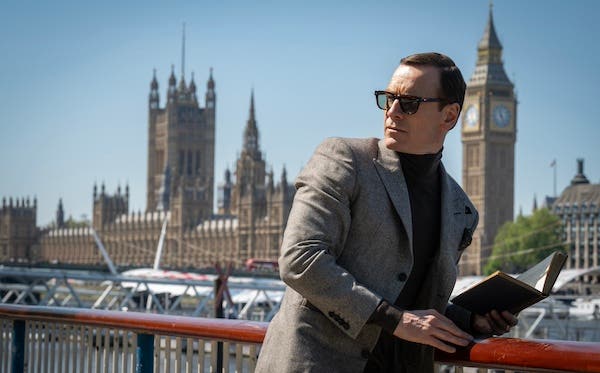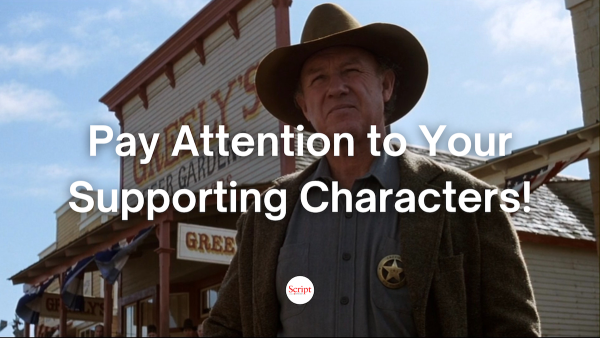Screenwriter Jeffrey Reddick Gives Advice on Creating a Film Franchise
by Jeffrey Reddick I’m a 20+ veteran of the entertainment industry. Like most people, I grew up seeing Hollywood as Oz – this magical place where dreams came easy and…
I’m a 20+ veteran of the entertainment industry. Like most people, I grew up seeing Hollywood as Oz – this magical place where dreams came easy and artists were treated like kings. At 19, I started interning at the coolest mini-major studio at the time… New Line Cinema. I sold them Final Destination when I was 26. I never went to film school. But I learned about the business in the most invaluable way. Instead of being caught up in my vision of Oz, I got to go behind the curtain of The Great and Powerful Oz and see how the business really worked. From development and marketing, to financing and distribution, I spent 11 years immersed in the business side of show business. And from page to screen, I got to see my first film turn into a profitable franchise.
But today I find myself sitting in my office (Starbucks) staring at a blank page, waiting for my muse to get off her ass and inspire me. And that’s when I hear a young guy sitting next to me say something… something I hear a lot in this hallowed coffee shop.
“I want to be a screenwriter.”
I look over and see that the young man is knee deep into a screenplay. I lean over and inform him that he’s writing a screenplay, so he is a screenwriter. He smiles at this simple encouragement, and we have a long discussion. We talk about art and commerce and what it takes to really be a professional screenwriter.
After this young writer and I finish talking, I start thinking about the nature of screenwriting, the business and the different types of screenwriters.
Most screenwriters I know fall into three categories. The first are natural born storytellers. These people seem to be born full of stories that they feel compelled to tell. As they grow older, this compulsion becomes a fire that can only be quenched by letting these stories out.
Writers want to connect with people and make them think. Or laugh. Or scream. And they usually take two paths in life. They go balls out… eschewing the cooperate world, and advice of parents and friends, and live the life of an “artist.” The take odd jobs to pay the bills but writing whenever they can. Or they take the path of least resistance. They quell this desire. Tell themselves it’s only a pipe dream. They either let the dream die. Or hibernate, until later in life, they realize they have to give writing a shot.
The second type of screenwriters are the people who have an idea for a story, but really only want to write, because they think it will bring them fame and millions of dollars. Most of these screenwriters don’t want to put in the time, or effort, to hone their craft. They either bang out a script after reading a screenwriting book, or try to find a writer to write their amazing idea, thinking it will give them the life of celebrity. These writers clutter the market, but usually quit when they realize success doesn’t happen overnight.
The third type, I like to call the accidental writer. They’re creative and artistic… but express it in some other form… like acting or directing. But over time, they find their creative instincts aren’t limited to one area.
I find myself in this latter category. While I have always loved writing, acting was my first love. I started in the early 90’s when non-traditional casting wasn’t in vogue. Frustrated by the lack of opportunity, I decided to give my second love a go. And I haven’t looked back.
Now one would think that working in a studio like New Line Cinema, would give me an instant in. But it didn’t. With Final Destination I actually took my idea to a production company with a first-look deal at the studio.
Most people ask me why I didn’t go straight to a close colleague in production? The answer is simple. I knew that even though I had the connections and a strong idea, it was better to get a producer onboard early. When you take a project to a studio, you need to have a stacked deck. A strong script, sadly, isn’t enough. I had to be business savvy.
Studios got, and still get, bombarded with dozens of scripts a day. And no matter how strong the material is, you have to do everything you can to make your script “package” as irresistible as possible. I learned this by observing the development process up close. Amazing scripts would come into the studio and get great coverage. But then a weaker script, with a hot producer/actor/director, attached would come in… and guess which script got picked?
For Final Destination we had producers Warren Zide and Craig Perry, who we riding high from the success of American Pie. But even then, there were hurdles to climb. The studio wasn’t convinced a movie with Death as the killer could be done. And after months of discussions, and the threat of taking the script to another studio, New Line finally came on board.
I stayed at New Line Cinema for six years after I sold Final Destination. When I sold the story for Final Destination 2, I finally decided to leave the studio nest and write full time.
But that was then. The marketplace has changed drastically since the 90’s. Hell, it’s changed in the last five years. And I have been in the middle of it. I have worked on studio fare, as well as low-budget films. I have seen how financing is put together and distribution deals are done.
In fact, a screenwriter today cannot expect to just write. You almost have to function as a producer and bring something to the table, whether it’s a director, actor or some financing.
The most important thing I’ve done, and I’ve seen others do, to survive in this business is evolve and adapt to this new world. A world where someone can shoot a film on a handheld camera and find distribution. A world where someone can post a short on YouTube and end up a star who gets a studio deal.
And, by the same token, I’ve seen talented writers make mistakes that kept their careers from blossoming. Most of this is due to a lack of knowledge about how the business side of “show business” has changed. If you look at what the studios are putting out, you’ll see that most movies are based off of books, comic books, video games, remakes or sequels. So to get your movie made, you have to know the current landscape and think outside of the box.
And that’s what I want to speak with you all about in my webinar, Creating a Film Franchise in Today's Movie Market. Whether you’re a young writer who’s knee deep in your first screenplay, or a seasoned pro, I want to share my unique 20+ years of experience about the industry and offer ways to think outside the box to create, not just a movie, but also a franchise property in this new, exciting and ever-changing world.
Jeffrey has worked in the film industry for over 25 years. He spent the first 11 years working at New Line Cinema, where he created the "Final Destination” film franchise. To date there have been four sequels, which have grossed over $650 million worldwide. Reddick has sold, or optioned, over 15 projects for film and television. Credits include Lions Gate’s thriller, “Tamara,” the remake of George Romero’s classic, “Day of the Dead” and USA Networks’ “Return to Cabin by the Lake.” Currently, Reddick is developing several projects, including “The Undertakers,” for Modernciné, based off the young adult series - and “Superstition,” for Global Renaissance Entertainment. Follow Jeffrey on Twitter @JeffreyAReddick.
~~~~~~~~~~~~~~~~~
Creating a Film Franchise in Today's Movie Market Webinar
Screenwriting Webinar from The Writers Store
REGISTER NOW
At a Glance:
- This webinar is for screenwriters and TV writers interested in learning the creative essentials of crafting a franchise property.
- Gain an understanding of the current state of the film business, and the marketplace.
- Discover secrets to increase your chances of getting a franchise property made.
Top screenwriting and film publication, founded in 1989, published by Active Interest Media. Twitter: @scriptmag







